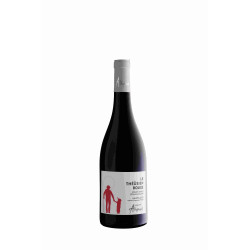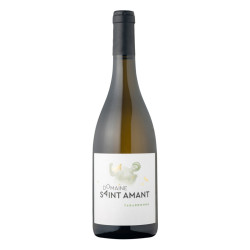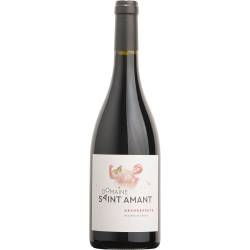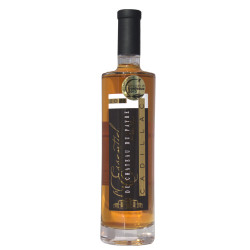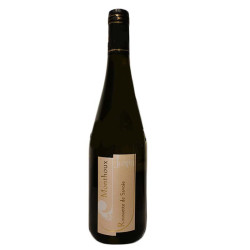Free delivery on purchases of €150 or more per winegrower in France and €250 in Europe (excluding United Kingdom)
Free delivery on purchases of €150 or more per winegrower in France and €250 in Europe (excluding United Kingdom)
-
- Great Offer
-
Our wines
-
-
By colors
-
All the wines
-
-
-
All Regions
-
-
-
-
Our organic & natural wines
-
-
Our Champagnes & Spirits
-
-
All Champagnes
-
-
Spirits
-
All the spirits
-
-
-
Our winemakers
-
-
-
winemakers
-
-
-
Our advice
-
-
Find your wine
-
-
-
- Our commitment !
-
- Great Offer
-
Our wines
-
-
By colors
-
All the wines
-
-
-
All Regions
-
-
-
-
Our organic & natural wines
-
-
Our Champagnes & Spirits
-
-
All Champagnes
-
-
Spirits
-
All the spirits
-
-
-
Our winemakers
-
-
-
winemakers
-
-
-
Our advice
-
-
Find your wine
-
-
-
- Our commitment !
Portraits of winemakers
PORTRAITS OF WINEGROWERS: “THERE ARE MORE AND MORE OF US IN THE VINEYARDS!

Celebrating Women in Wine: From Bordeaux to Champagne and Beaujolais
On this International Women's Day, we meet three remarkable women from Bordeaux, Champagne, and the Beaujolais wine regions who have made their mark in the world of viticulture.
"A Spectacular Leap in the Last Ten Years"
"Behind every great man is a woman!" Anne Gremillet, one of the current owners of Maison Champagne Gremillet, fondly remembers the time when her parents arrived at the estate 30 years ago. "My father was the one everyone turned to. But my mother was involved in everything." Valérie Labrousse, a winemaker at Château du Payre—a family estate in the Bordeaux region that has been passed down from mother to daughter for five generations—reminisces about a time when women had no place in the wine industry. She recalls, "Women were forbidden from entering the cellars." Sylvie Dufaître Genin, owner of Domaine Crêt des Garanches, also remembers feeling somewhat isolated in a predominantly male profession when she took over her family's Beaujolais vineyard in 1999.
Fortunately, those days seem to be over. The profession of winemaking is no longer exclusively reserved for men. Although there are still more men than women in the field, it is no longer surprising to see a woman working in the vineyard. "There has been a spectacular leap in the last ten years. Women winemakers now enjoy recognition from both the public and their peers," notes Valérie. Anne agrees: "We are increasingly present in the vineyards!"
Women Winemakers' Associations
This progress is reflected in a strong sense of community across France, leading to the formation of numerous women winemakers' groups and associations throughout the country's wine regions, such as Les Fa’bulleuses (Champagne) and Vignes Rhône (Southeast). Valérie, who proudly identifies as a "feminist," participates annually in Les Héritières de Bacchus, an event exclusively for women winemakers. "I am the only representative from my region, so I make it a point of honor to participate," she exclaims.
Anne is aware of these associations, but for her, who works in a family setting with full gender parity, the familial spirit seems to take precedence over the associative spirit. "I have never experienced any sexism in the wine industry. Especially since I work in complete harmony with my husband, my sister, my sister-in-law, and my two parents!" Sylvie shares a similar perspective, managing her estate alone, with her husband not being a winemaker. For her, it doesn't matter that there are few women in her professional circle: "What matters most is producing my wines and ensuring they are recognized for their quality."
Wines with a Feminine Touch
Each woman has her own perspective on her profession. However, the notion of a "feminine wine" is familiar to all three winemakers. Valérie, noting that the all-female history of her estate is a strong selling point, describes her wines as "sensual and feminine." For Anne, there is a clear gender distinction among Champagnes. "A Blanc de Blancs Champagne, which is 100% Chardonnay, represents elegance and finesse. I believe it appeals more to women. In contrast, a Champagne made from Pinot Noir is more robust and, therefore, more masculine." Sylvie, on the other hand, finds this attribute amusing: "When I took over my parents' estate, many people said my wines had become more feminine. Yet, I hadn't changed anything compared to previous vintages!" She does acknowledge that her wines have perhaps become lighter and fruitier over time, which aligns with her idea of a feminine wine.
Our nuggets
Related articles
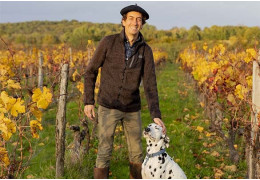
CHÂTEAU CAILLIVET: BIODIVERSITY, HOSPITALITY AND AUTHENTICITY
What won Guilain Latournerie over to the world of wine was the continuity th...
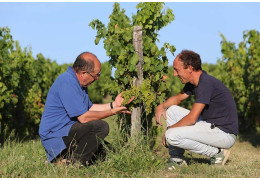
2021, THE YEAR OF BIO FOR CHÂTEAU LA PEYRUCHE
The vineyard has been HVE (High Environmental Value) certified since the 201...
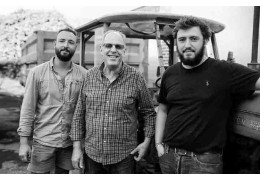
MAISON ALBÉRIC DUVAT, A CHAMPAGNE AT THE CROSSROADS OF THE MARNE, AISNE AND AUBE REGIONS
It was on ten hectares of vines between Sézanne and Épernay that the grandfa...
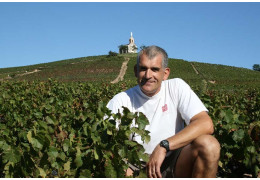
GILLES ET ANNIE COPÉRET, ÉPICURIENS ET VIGNERONS DU BEAUJOLAIS
Gilles and Annie Copéret, epicureans and winemakers in Beaujolais
